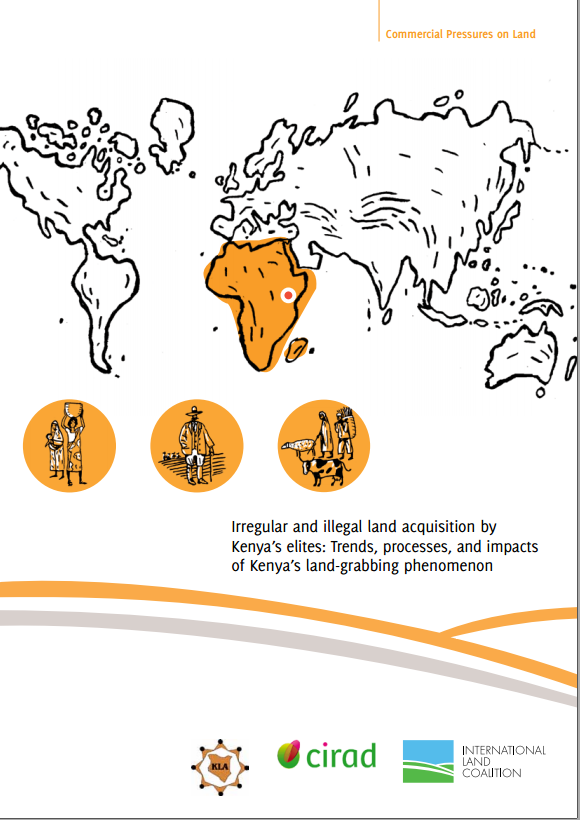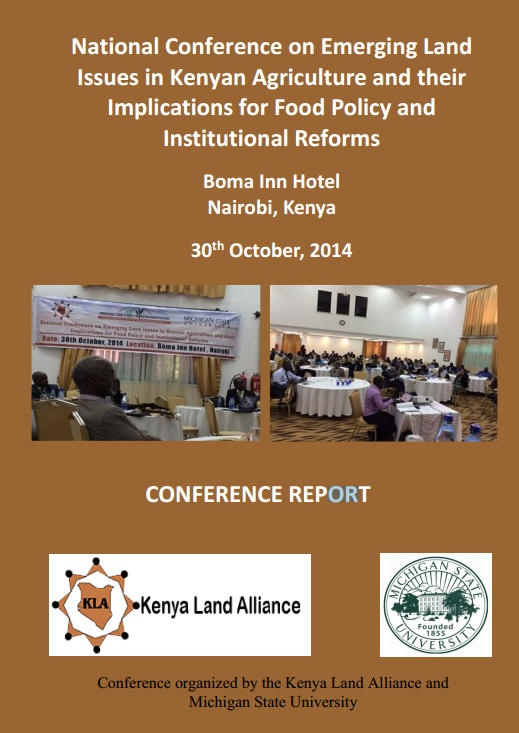Irregular and illegal Land Acquisition by Kenya’s Elites: Trends, Processes, and Impacts of Kenya’s Land-Grabbing Phenomenon
The International Land Coalition (ILC) has commissioned this present report to analyze the illegal/irregular acquisition of land by Kenya’s elites to ascertain the types of land affected, the processes used to acquire land, and the profiles of the perpetrators, as well as to identify the victims and the impacts of land grabbing. The report is drawn largely from the Kenya Land Alliance (KLA)’s series “Unjust Enrichment: The Making of Land Grabbing Millionaires”,



